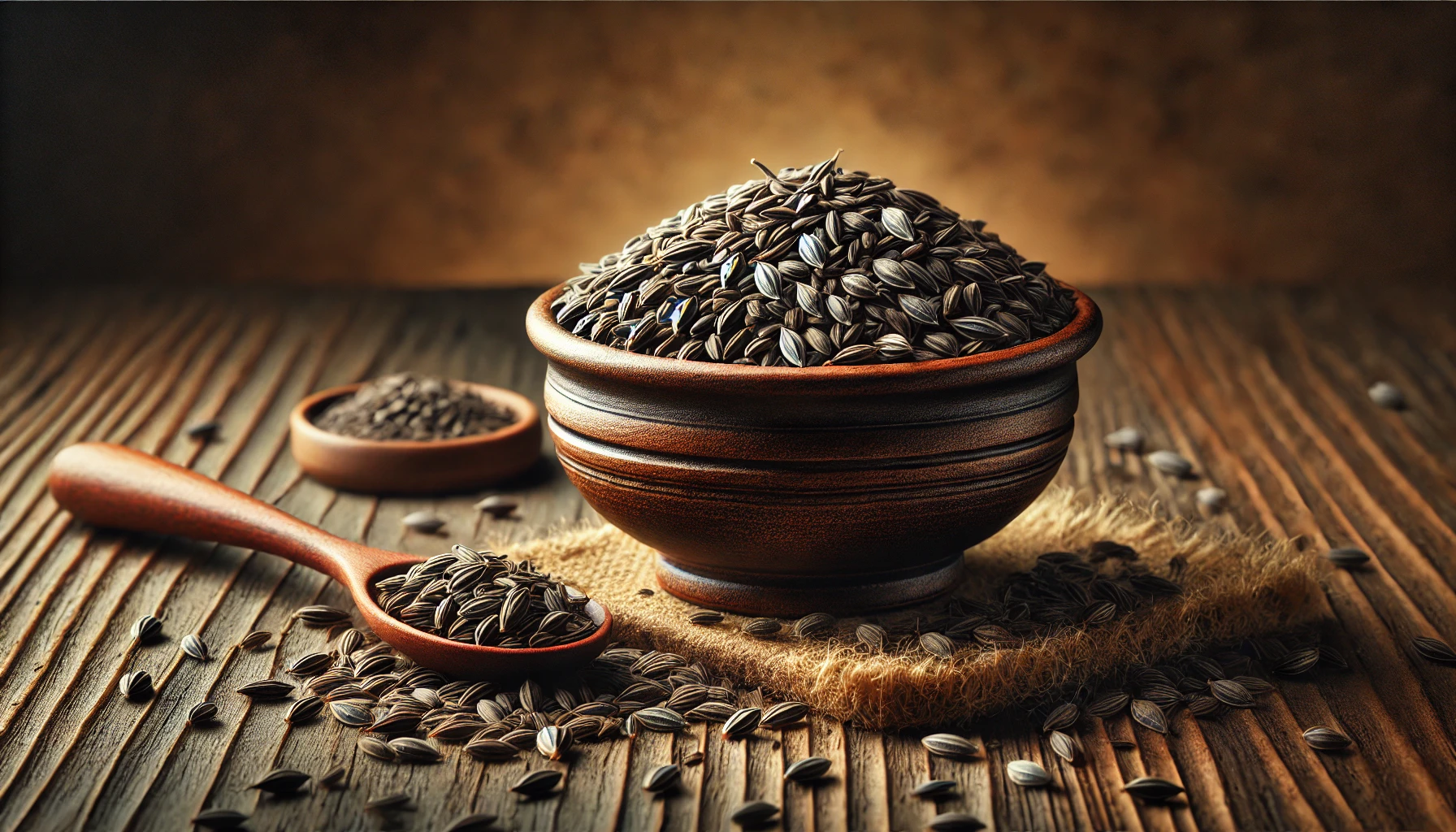Alternatives for nigella seed
Nigella seed, also known as black cumin or kalonji, is an aromatic seed widely used in Indian, Turkish, and Middle Eastern cuisine. If you don't have nigella seed, there are various alternatives that offer a similar nutty and slightly spicy flavor. From black sesame seeds to cumin seeds, there is a suitable substitute for every dish.
What is nigella seed
Nigella seed comes from the flowering plant Nigella sativa and has a unique flavor that combines earthy, peppery, and slightly bitter tones. It is often used as a topping on bread and crackers, in curries, or as a flavoring in marinades and dressings. Nigella seed is small, black, and has a triangular shape.
In the Netherlands, nigella seed is mainly known in the bakery sector, where it is used on naan bread and Turkish bread. Internationally, it is a commonly used ingredient in dishes from South Asia and the Middle East. If you don't have nigella seed, there are alternatives that offer a similar taste and texture.
Nigella seed substitutes
- Black sesame seeds: An excellent visual alternative with a similar nutty flavor, although less spicy than nigella seed.
- Cumin seed: For an earthy and slightly spicy flavor, you can use cumin seed. This works well in curries and stews.
- Cloves (ground): For a more intense flavor, you can use a little ground clove. Use this sparingly.
- Black peppercorns: Use lightly crushed black peppercorns for a spicy, earthy touch. Ideal for savory dishes.
- Poppy seed: A mild alternative with a subtle nutty flavor. It is especially suitable as a topping on bread.
- Anise seed: For a sweeter and aromatic flavor, you can use anise seed in dishes such as curries or bread.
- Fenugreek seed: A spicy alternative with a nutty and slightly bitter taste. Ideal for use in curries and stews.
With alternatives such as black sesame seeds, cumin seed, or poppy seed, you can easily replace nigella seed in your dishes. Choose a substitute that fits the flavor and application of your recipe.
Are you missing an alternative?
Tip our editors via this form.
Thanks in advance.
Why Do People Look for an Alternative to Nigella Seeds?
There are several reasons why one might look for an alternative to nigella seeds, also known as black cumin:
- Availability: Nigella seeds are not always available in every supermarket, leading people to look for alternatives that are easier to find.
- Health considerations: Although nigella seeds have numerous health benefits, some people may be hypersensitive to the seeds and therefore look for safer options.
- Dietary restrictions: People with specific eating habits or dietary restrictions may be looking for alternatives that better fit their diet.
- Taste preferences: Nigella seeds have a strong and somewhat bitter taste that some people may not appreciate, leading them to look for other options.
Top 5 Frequently Asked Questions about Nigella Seeds
1. What are nigella seeds?
Nigella seeds, also known as black cumin, is a small black seed often used in Indian and Middle Eastern cuisine. It has a strong, spicy flavor and is praised for its health-promoting properties.
2. How can I use nigella seeds in the kitchen?
Nigella seeds can be used both raw and roasted and are often added to bread, curries, salads, and stews. The seeds can also be ground and used as a spice or supplement.
3. What are good alternatives to nigella seeds?
Good alternatives to nigella seeds include sesame seeds, cumin seeds, or chia seeds. These seeds each have their unique flavors and nutritional profiles but can nonetheless be used as substitutes in many recipes.
4. Are nigella seeds healthy?
Nigella seeds are rich in antioxidants and have anti-inflammatory properties. They can contribute to a healthy immune system and may be beneficial for people with autoimmune diseases or digestive problems. However, excessive use can cause side effects, so it is advisable to consume them in moderation.
5. Can I grow nigella seeds myself?
Yes, nigella seeds can be grown at home in a pot or garden. The plant needs full sun and well-draining soil to grow. The seeds can be harvested once the flowers have bloomed and the seed pods have turned brown.
Nutritional Value of Nigella Seeds
Below is a table with the average nutritional values per 100 grams of nigella seeds:
| Nutrient | Amount per 100 grams |
|---|---|
| Energy | 375 kcal |
| Carbohydrates | 44.24 g |
| Proteins | 21.7 g |
| Fats | 17.8 g |
| Fibers | 10.5 g |
Note: The exact nutritional values may vary depending on the specific variety and the growing conditions of the seed.
